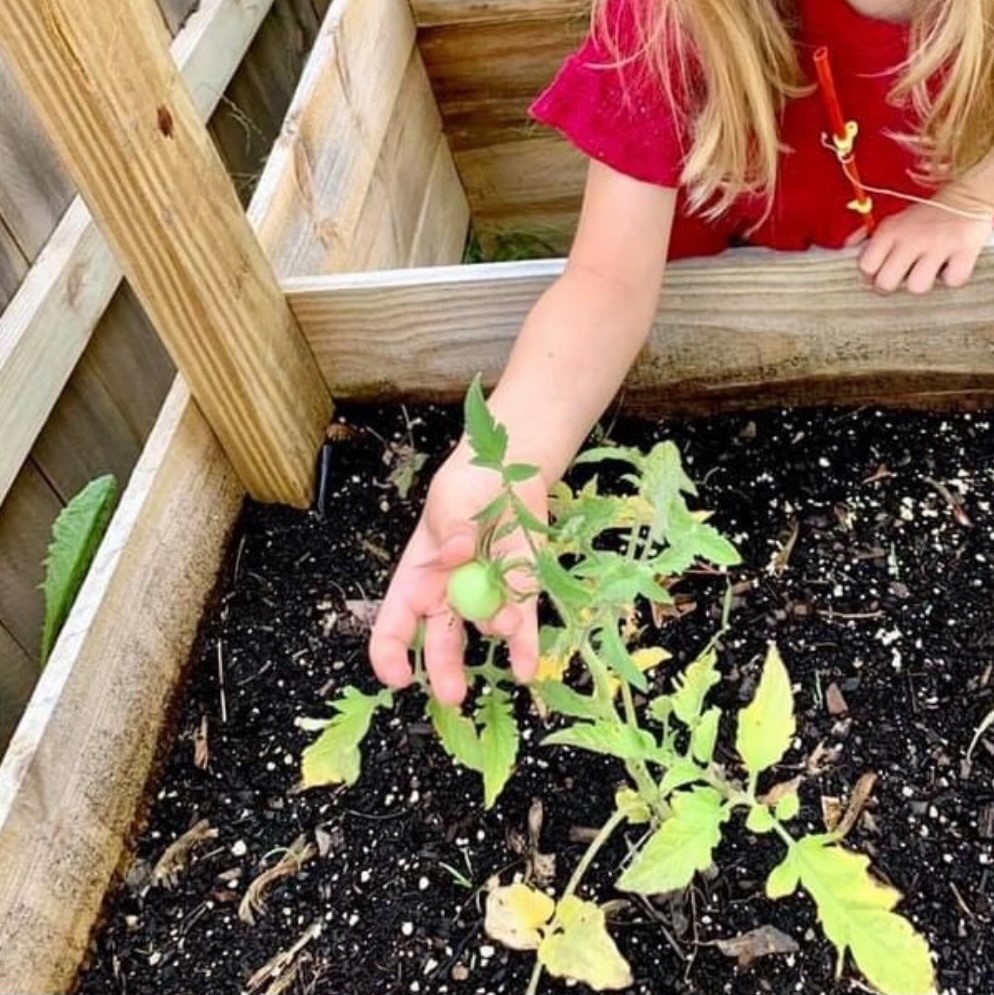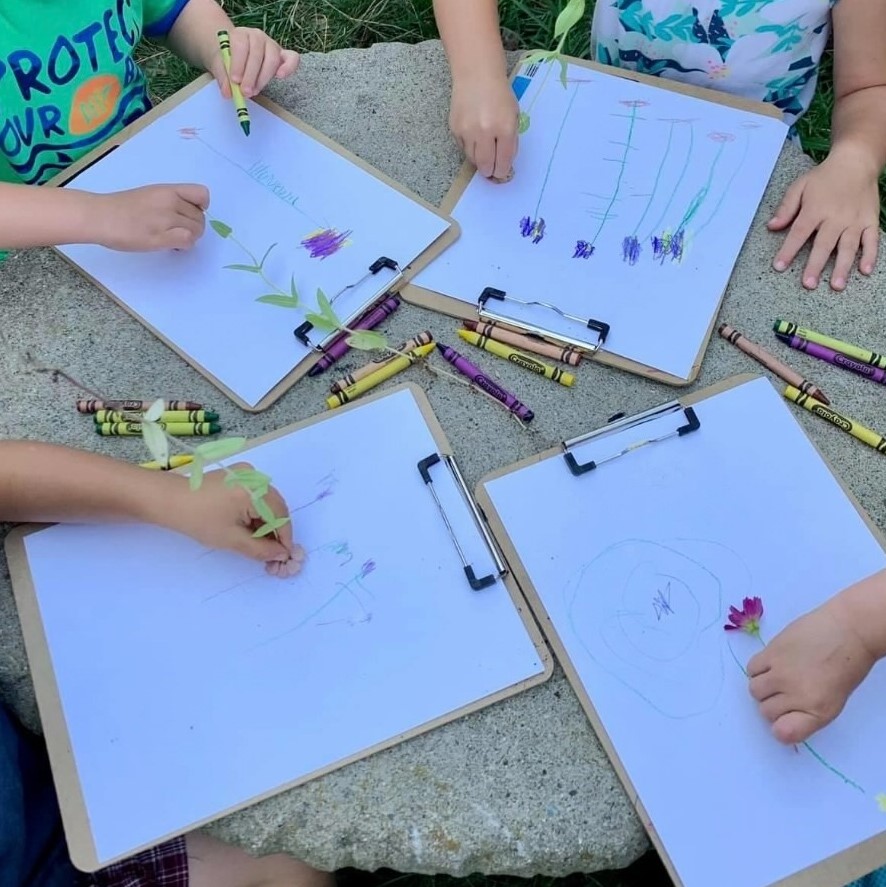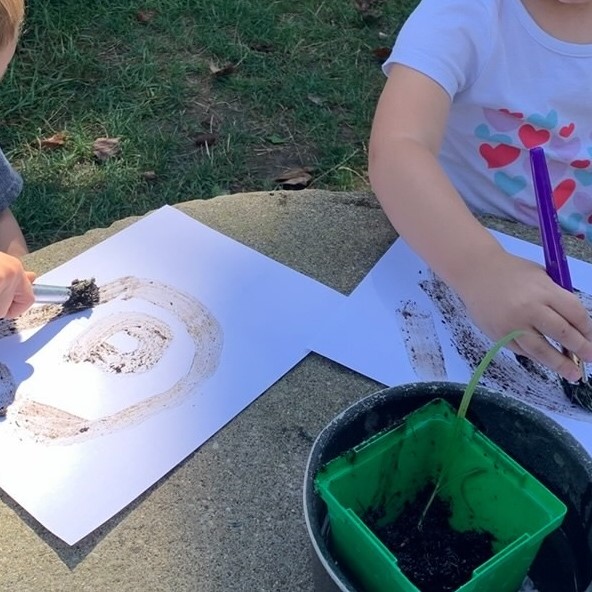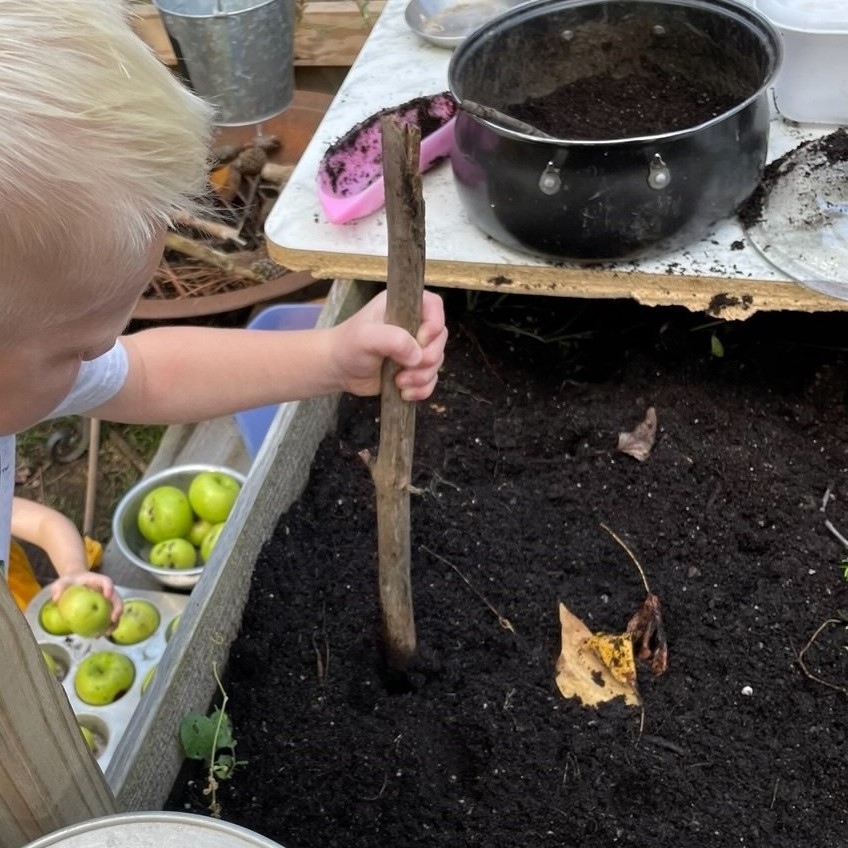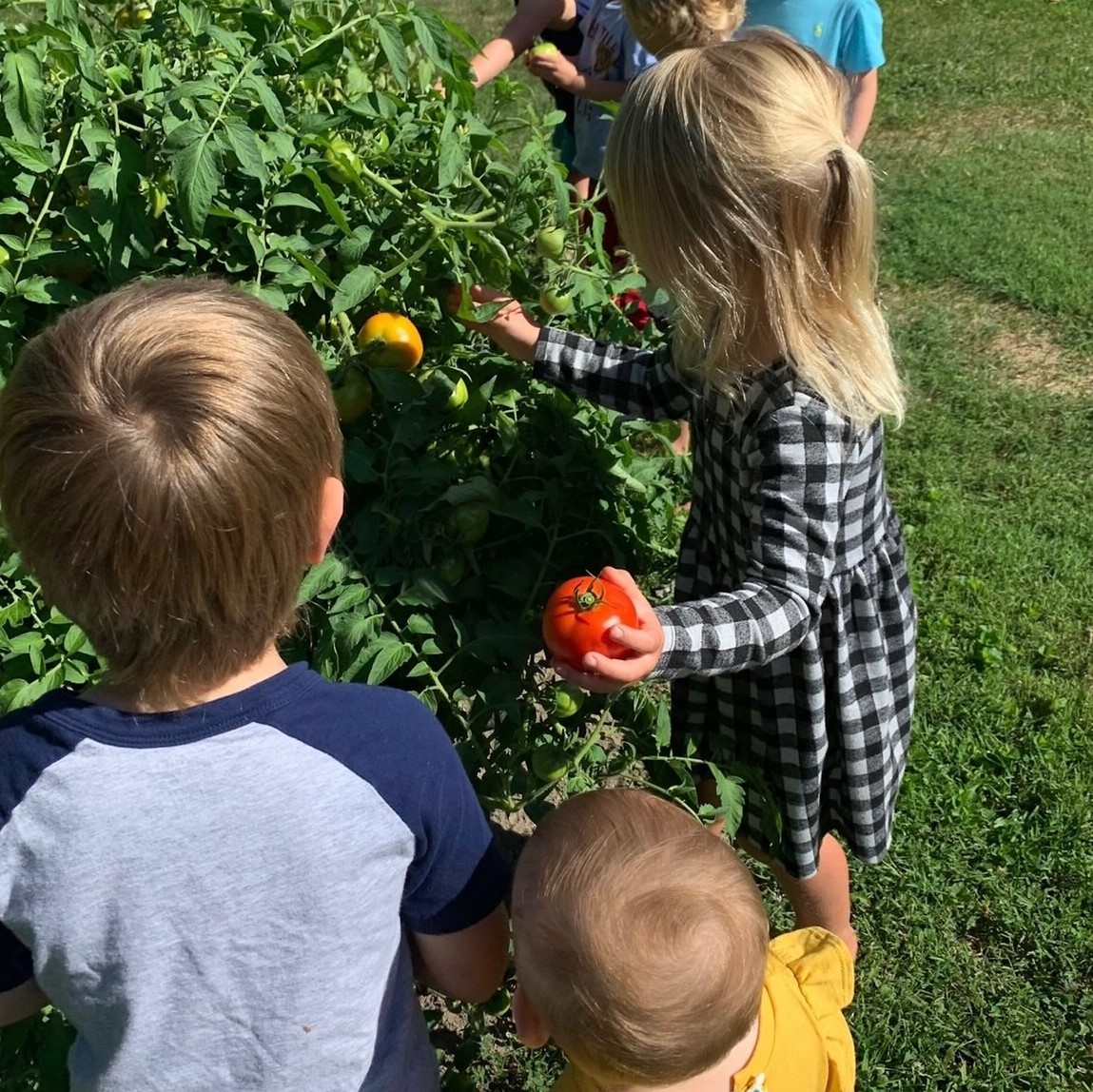Gardening has many benefits for young children, including developing responsibility skills , fostering a sense of community, and developing confidence as they care for the plant and observe the growth. To begin, all you need are a few materials, and gardening doesn’t need an ample outdoor space; you can easily create a small indoor garden to fit your program.
Stephanie Mckinstry from My Caterpillar Clubhouse, a Certified Nature Explore Classroom, shares more benefits of gardening, how she begins her garden indoor and transfers the seeds to her outdoor garden. Watch below.
Our garden
In our garden, we focus on learning together, caring for each other and our planet, and helping children develop a sense of belonging to a community and the natural world. We learn about growing our own food, composting, and recycling.
Here are just a few benefits of gardening with children:
- Sensory Development. Gardening engages many aspects of sensory learning. Children get to see, touch, smell, and taste what they grow in their garden.
- Encourages Healthy Eating. Children develop an interest in their growing vegetables, which leads to their keen interest in eating them.
- Responsibility & Patience. Gardening is a great way to teach responsibility, as children learn how to care for plants. The process of harvesting does not happen overnight. Children learn to be patient when waiting for the vegetables to grow as children observe and care for their plants.
- Expanding learning: Gardening helps with a wide range of learning, including learning about the seasons, weather, life cycles, animals. It also helps develop numeracy and literacy skills. Following sequential steps, seeing print in labels, drawing and writing to document growth, measuring the plants, counting the seeds and vegetables.
- Develops Social Skills: Especially here at Caterpillar Clubhouse, gardening can be a very sociable activity. Children learn to work together and enjoy discussing different types of veggies and their process of taking care of their plants. Gardening presents wonderful opportunities for children to bond and help one another look after and nurture their garden.
- Helps self-regulation: Studies have shown that having contact with dirt, whether it’s through gardening, digging holes, or making pies out of mud, can significantly improve a child’s mood and reduce anxiety and stress, even boost immunity which we all need.
We talk about all the flower parts, exploring each part by touching and smelling!
We observe and document using different materials!
Now we explore and eat!
A container garden can be a great way to garden when space is limited and also a great way to get children started with gardening. Taking part in the process from seed to plate is a great learning opportunity for children, and might even get picky eaters to try something new that they have helped to grow themselves! This resource gives tips for how to create a garden of edibles, from choosing containers to selecting the kinds of edible plants you would like to grow. There are links to many other resources to support this activity.
Growing Edibles in Containers Handout

